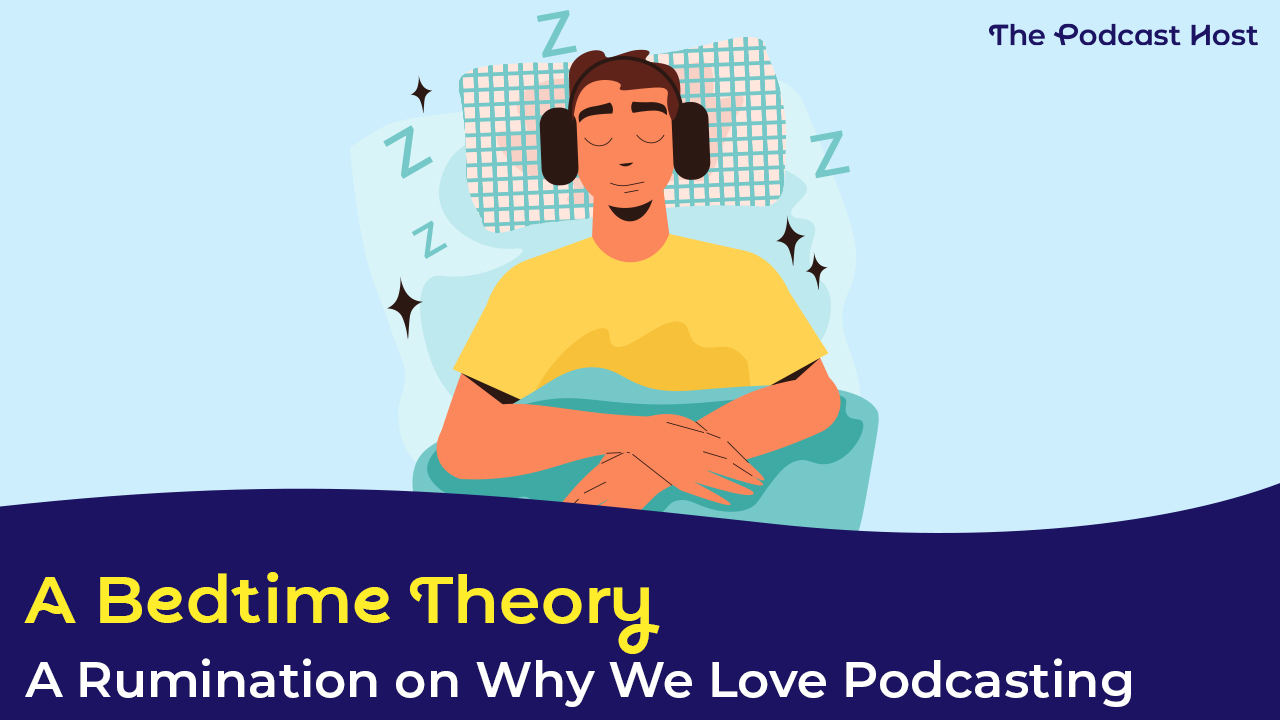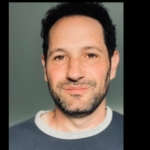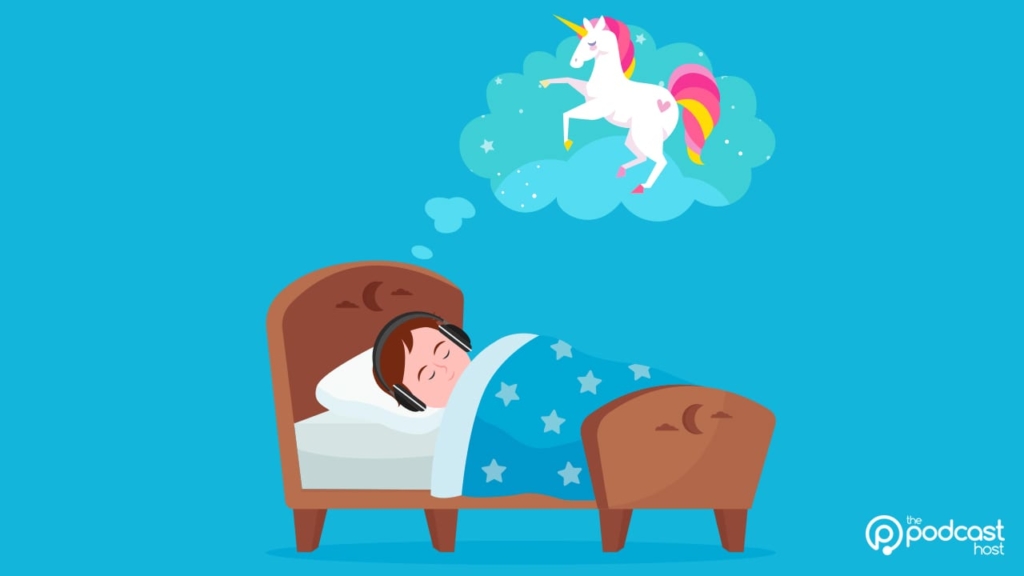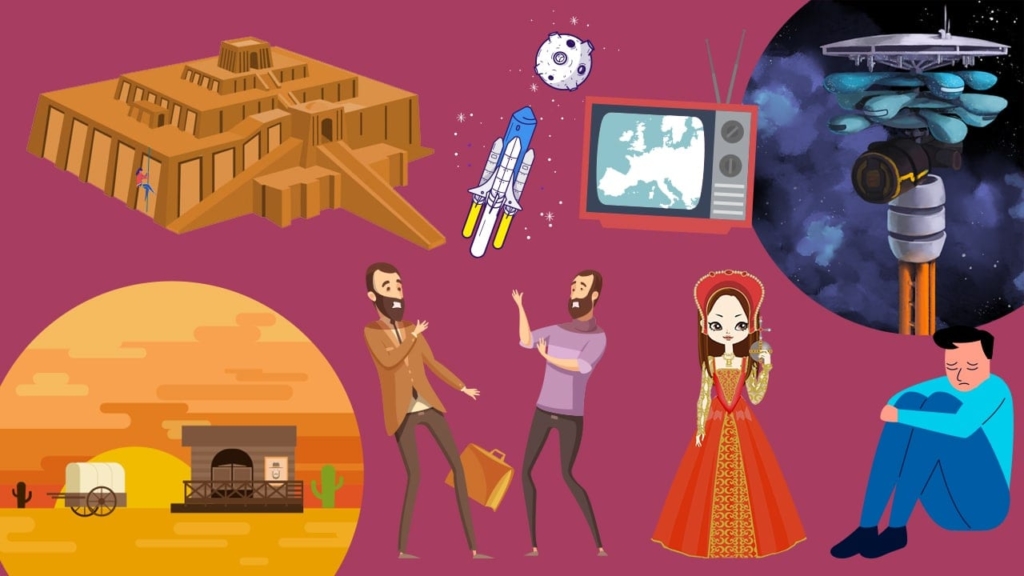A Bedtime Theory: A Rumination on Why We Love Podcasting

I’ve been obsessed with audio since I discovered crumpling a piece of paper into my cassette recorder sounded like fire. I was 9. I had a lisp, spoke painfully slow, and sounded like a little girl with a thick Brooklyn, New York accent.
It was a great listen.
I have been a lifelong consumer and creator of audio. The invention and exponential growth of the Podcast industry fascinates me. I saw its potential in 2006 when I suggested to an executive at our company that we should start podcasting. He said it was not a viable business. In 2006, that may have been the case, but budgets, verticals, and profit margins don’t usually inspire a movement.
As we welcome in 2023, Podcasting isn’t just a billion-dollar industry with limitless growth potential. Podcasting is a way of life. Besides the involvement of corporate entities and the rags-to-riches stories, thousands of passionate podcasting enthusiasts hit record, post their shows and never earn a dime.

By David Blaustein
David spent nearly three decades working in radio. For 18 years, David served as an Entertainment Correspondent and Movie Critic at ABC News Radio, creating and producing countless hours of short-form and long-form audio content. You can see David in the Netflix documentary series Trainwreck: Woodstock 99, providing first-hand accounts, context, keen insights, and wild gesticulation.
“Everybody Has a Podcast”
“Everybody has a podcast” is a well-worn cliche for a reason.
If you’re devoting so much time to producing a podcast, why bother if your audience isn’t big enough to garner a profit?
It seems like a vacuous, maybe even patronizing, question.
It’s not. The question has utility when understanding the driving force behind the popularity of podcasting.
Conventional wisdom, common sense even, is podcasting is easy and accessible. Anybody with a smartphone can record and produce a podcast. Various industry types have explained podcasting’s success by pointing to portability and convenience. All of these things can be true. I posit something that is not backed by statistics or metrics because it’s impossible to measure. It is the inherent and intangible reason why humans consume audio.

Bedtime Theory
I call it the “Bedtime Theory.”
We were told stories at bedtime as babies, toddlers, and small children. Your parents, grandparents, or whichever authority figure raised you either read or told you stories right before you laid your precious little head on a nice cool pillow. While your pillow, mattress, and blanky were comfy, the sound of the voice painting the silence with words and sentences, including cadence, passion, or dispassion, was the most comforting element.
We are disciples of sound, children of the spoken word.
Genesis
The spoken word has always been our most potent means of communication. Where would organized religion be without it? Let’s take Christianity as an example. The gospels were written decades after the death of Christ. The anecdotes in the gospels aren’t based on written texts chronicling Jesus in real-time. Instead, during a period in history where the literacy rate was maybe, 5-percent, stories passed on by Jesus’s disciples, starting with, as the story goes, his apostles, are the basis of the gospels. Those tales were amplified by the latest and greatest technology of the time: Mouth and Ears (no upgrades or updates required).
Today, there are over 2.3 billion Christians around the world. The genesis (pun intended) was an innate transaction we participate in daily: speaking and listening.
Like some successful hosts and podcasters, the proselytizers spreading the gospel were not always the most articulate or blessed with silky smooth voices. Instead, missionaries told stories with passion and authority.
If you can’t recall being on the receiving end of a bedtime story, think about telling one to your children, nieces, nephews, or grandchildren. We speak with a careful but playful authority. Some of us aren’t particularly articulate, but It doesn’t matter. We use our words, by any means necessary, to immerse our audience in a tried and true nocturnal ritual. The children are willing participants, hanging on every word, engaged with disbelief suspended, even when the stories are scary, uncomfortable, or boring.

Choosing Our Stories
We have been conditioned, since birth, to receive stories from authority figures. We spend the rest of our lives on a neverending quest to hear more stories. Is it a surprise that we almost instantly endow a person talking through our earbuds or in our cars with authority? We briefly let our guard down, permitting the host to tell us anything that will stimulate our imagination, supply us with information, or reinforce our worldview. The difference is we, as autonomous listeners, can turn it off. We have the power to find another story or message. As children, story-telling adults didn’t come with an off button. We could not scroll and choose a new adult to tell us a story. We were stuck.
As podcasters, we flip the script, telling the stories of our choice. I’m sure that 9 out of 10 podcasters remember receiving those bedtime stories. You couldn’t wait for adults to cede control of that ritual, spraying the air with words to a captive audience of your siblings, nieces, or, one day, your children.
Overtly and obviously, podcasts are subjectively entertaining. Subconsciously, we are fulfilling a childlike need for instant gratification. Subconsciously, listening to a podcast is an act of power and defiance wrapped in a bedtime story’s comfort, safety, and nostalgia.
Freudcasting
Sure, everything I’ve written here is anecdotal, but it’s based on my passion for psychoanalysis. Freud, the person most associated with the creation of psychoanalysis, aka TALK therapy, said:
“Words have a magical power. They can bring either the greatest happiness or deepest despair; they can transfer knowledge from teacher to student; words enable the orator to sway his audience and dictate its decisions. Words are capable of arousing the strongest emotions and prompting all men’s actions.”
Whether intentional or not, Freud distils his complex systems for psychoanalysis into this one convenient and easy-to-understand statement:
“We are what we are because we have been what we have been.”
In a sense, we’re not podcasting. We’re Freudcasting.
The next time you tell a bedtime story to a child, you’re not just stimulating their brain and creating a sense of security, you’re training a future podcaster and enthusiastic podcast listener.
